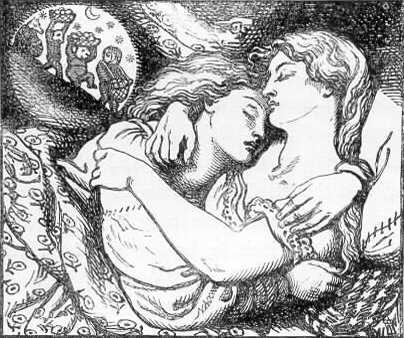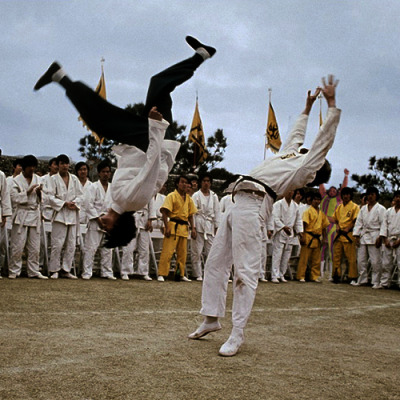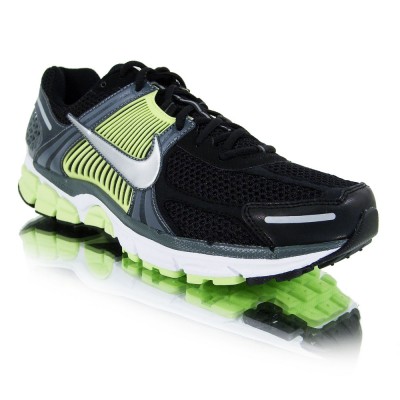My third run this week in the rain. Any sensible person would ask, why don't you just go to the gym?
As a troubled child John Clare set out one morning to walk to the horizon. But the horizon, the imagined and perfect coign of vantage from which to survey the earth is an illusion of perspective. A point created only by the observer. It is not the end of nature; it is the end of our ability to perceive it. Clare later wrote 'I long for scenes where man has never trod ... There to abide... and sleep as I in childhood sweetly slept: untroubling and untroubled where I lie; the grass below - above, the vaulted sky.' In these lines there is a longing for a return to the earth, to childhood, or even to the grave. The lines turn upon the interpretation of ‘untroubling’. Is Clare saying that ‘where I wish to lie will be a place that provides undisturbed and peaceful rest’? Or, is it, ‘where I wish to lie shall be undisturbed by my presence’? What is so great about Clare’s poetry at its best (like in ‘I Am’ or ‘The Badger’) is that such double meanings in themselves create a sense of doubt about our relationship with the natural world. On the one hand, Romantic poets like Wordsworth on first seeing Mont Blanc grieve, as he says in The Prelude, ‘to have a soulless image on the eye’ when the idea of nature is usurped by the sight of its actuality. The potential of ‘man’s’ imaginative power, offended by the paucity of nature’s finest offering. On the other, Clare suggests that he does not watch nature; he is of it. His arrival at his place of rest would be ‘untroubling’ to his surroundings and harmonious with it. If a tree falls in the woods and there was nobody there to hear it, does it make any sound? Wordsworth would reply ‘If there is nobody there to hear it, then who cares?’ Clare, silent, would mourn the loss of it. I love Wordsworth, more than most poets, but I am with Clare. Our existence is a creaturely one. What does this have to do with going to the gym?
For most of the eighteenth and nineteenth centuries, prisoners of Her Majesty who had been sentenced to ‘hard labour’ worked (yes, wait for it) a treadmill. The treadmill was for nearly 200 years the harshest punishment (beyond the death sentence) that a judge could condemn the prisoner to.
Oscar Wilde was one of the Act's condemnees, prosecuted for gross indecency under the Labouchere Amendment of 1885. In his biography, Richard Ellman explains that during Wilde's time in Pentonville prison he had to walk the treadmill for around six hours a day. The prison’s chaplain wrote,
'When he first came down here […] he was in an excited flurried condition, and seemed as if he wished to face his punishment without flinching. But all this has passed away. As soon as the excitement aroused by the trial subsided and he had to encounter the daily routine of prison life his fortitude began to give way and rapidly collapsed altogether. He is now quite crushed and broken. This is unfortunate, as a prisoner who breaks down in one direction generally breaks down in several, and I fear from what I hear and see that perverse sexual practices are again getting the mastery over him. This is a common occurrence among prisoners of his class and is of course favoured by constant cellular isolation. The odour of his cell is now so bad that the officer in charge of him has to use carbolic acid in it every day […]. I need hardly tell you that he is a man of decidedly morbid disposition [...] In fact some of our most experienced officers openly say that they don't think he will be able to go through the two years.'
He did make it through, but only just; he died in exile and infamy only a couple of years after his release.
Times have changed. Treadmills used to be a tool of punishment but we now pay private-school-fee levels of gym membership for the honour of running on them. People will tell you that there is nothing worse than an ex-smoker. There are: I am an ex-smoking, ex-gym user. Don’t get me wrong, I was never terribly committed to either pursuit, but I used to go to the gym because I played squash and badminton and a bit of gym was good for the elastic body. But I nearly always ran outside, even when I was paying £85 a month to run inside. For me, then and now, it is still too close to a punishment. Every machine is aimed like a crossbow to a target at a TV screen. Lines of TVs tuned to different channels. The tinny headphones that you have to turn up ridiculously loud just to hear the news telling you 'What we need is a patient-centred NHS.' The whole point, I know it's a cliché, but the whole point of running is to get away from all this, well, rubbish: Cables, Screens, Soundbites, Machines, Double-glazing, Giant bouncy balls, Floor-to-ceiling mirrors, Techno, Tacksuits (sic), Abs, and the noise. The noise that not only you and your machine make, but the noise that everyone else makes with their clanging weights, huffing, puffing, yowling, whirring, stamping, shoooooosh!ing – all can be heard on any visit to this foul supermarket of stretching and sweat. (More serene runs are to be had on the Catford Gyratory.) Like brains in vats, their headphone cables are spinal cords plugged into the global Sky News network. They are dead and Skynet lives.
Here, you are not a person, you are a consumer, but not one with choice. You are a foie-gras goose to be speed-stuffed with meaningless and empty experience none of which you will ever remember. Wordsworth and Thomas De Quincey, two figures who repeatedly delighted in the profoundly productive and fructifying powers of memory, would have taken a hammer to your knees had they seen you running on them. A run on a treadmill has all the philosophical significance of brushing your teeth (you may remember doing it today, but what about twelve days ago?) I have done countless runs in the last 6 months that I will remember to the end of my days. I do not have a particularly well-developed memory - I can never remember Michael Gambon's name whenever I need it (consider yourself honoured, dear reader, you have just witnessed a rare thing indeed). I can remember bus loads about my runs, even regular ones from months ago: running on Blackheath in a blizzard; my first barefoot run round Lewisham; running up what felt like a vertical cliff to the Tennyson monument near Freshwater on the Isle of Wight (on two separate occasions); another barefooter at Seasalter in Kent - a beautifully stressed post-apocalyptic piece of coastline where the staff in a deserted pub gave me a free bag of crisps because I had missed lunch. There are many more, but the point is that all of these runs brought me something, meant something, and continue to mean something.
In the case of the latter, I had no foreknowledge of the Seasalter landscape so began the run shod, then dumped my shoes on the footpath after about half a mile to be collected on the way back. The ground was hard and dry, but softened by a cool and pert furring of grass. It was bliss to run on. There were a few kissing gates that had waist-high nettles growing in them, so I climbed onto the concrete sea barrier and went round them instead. Just about the only person I saw on the run was after I had done my miles for the day and was returning to collect my shoes. The chap was a bit older than me (the age of a shopkeeper from your childhood, say). He looked at my ridiculous shoes nestled in the ankle-high grass, one fire-engine red and one custard-yellow. Leaning over to get a closer look, like that would help, he looked as if he had been a dog he would have barked at them. He glanced up and saw me a good many yards off. His gaze dropped to my shoelessness and, 'ah', all was explained. He began to move on and gave me a polite smile as I passed him. I finished up by doing some light speed-work with five repetitions that declined in speed.
 |
| Aren't they a riot? |
This run was months ago and I have not scratched the surface of all the things I remember about it. I remember the weather (crisp sun and a light breeze); the serious-looking, fat, topless man on the white bike who did not look at me as we crossed paths; the bright orange lichen which clung to the sea wall, the milky-coffee sea, you get the idea. It may sound like it was, but it was not a particularly special run, or a memorable one. One thing it was, though: it was a real and lived experience. In my life I have run on treadmills many times. I recall nothing specific about any of those experiences. Nothing. Nothing. If Kennedy had been shot while I was running on a treadmill I would not be able to say where I was when I heard the news.
Treadmills are dehumanising. They are the most abject and useless forms of punishment that eighteenth-century penal philosophers could devise. The 1779 Penitentiary Act stated that prisoners should endure ‘labour of the hardest and most servile kind in which drudgery is chiefly required and where the work is little liable to be spoiled by ignorance, neglect, or obstinacy’. Think about that next time you may want to step onto a treadmill, ‘this machine’s guiding purpose is to instill in me feelings of ‘drudgery’.’ Surely there is enough of that in modern life to see you through already. Treadmills turn us into automata. Everything that a run might be, everything that puts us in touch with our creaturely life on this earth is taken away from us on a treadmill. John Gray in Straw Dogs: Thoughts on Humans and Other Animals posits an answer to the biggest question of all: what is the purpose of our lives? ‘Other animals do not need a purpose in life. A contradiction in itself, the human animal cannot do without one. Can we not think of the aim of life being simply to see?’ There is nothing to witness on a treadmill. It denies us our creaturely existence. Look at the picture below. Does it say 'freedom' to you?
In the nineteenth century the design of the prisoners’ treadmill changed slightly with the installation of panels to separate the prisoners so that they could not talk to one another, that they might contemplate their crimes in isolation, and without distraction. Now, if we go back to thinking about those treadmills aimed at the TV screens and the ‘free’ headphones that you are supplied with, what is actually going on? Are you quite innocently being provided with a bit of entertainment for your run, or is something else happening. The sociologist Erving Goffman in The Presentation of Self in Everyday Life asks why it is that when we are walking down the street and we glance at someone, they meet our eyes, and we immediately avert our gaze. He suggests the reason we look away with such rapidity is that we all want to be complicit in creating an illusion: when we are in public we pretend that we are in private. As a species we are not used to living in cities (we have only been doing it for a flint’s scratchy flash of our history). Neither, it seems, are we particularly attuned to being in places where we do not know others. Treadmills, and their organisation in gyms, have exactly the same effect as the separator panels did for the prisoners. In a gym you ought not catch the eye of someone, their glance back will be loaded with the question ‘What the hell are you looking at me for, you should be looking at the TVs.’ There is not a chance that you might engage someone in conversation. What would be the point? You are wearing headphones and so are they. Gyms are public places, they have to be to make money, but they desperately want us to feel like we are in private.
I am not saying that you should talk to the person on the treadmill next to you. I guarantee they won’t want to talk to you. The etiquette is identical to the rules of social engagement at men’s urinals: eyes forward, concentrated silence, no talking, no farting, always choose the vacant space farthest away from the one that is occupied. What I am saying that you should not get on one of these things in the first place. And, what is so wrong with silence? Even the hard-labour prisoners of the eighteenth and nineteenth centuries were permitted to think while they worked their mills. Our gantry of TVs simultaneously tuned to Sky Sports 1, Sky Sports 2, Sky News, Eastenders, and Springwatch Live (if only!) make thinking impossible. (Excuse me while I use a little Althusser), these places interpellate us into being timorous idiots that have to be coaxed away from the horrible and endless abysses of self-reflection that may be induced by a minute's silence. If we are not goose-fed Technicolor images and ever-competing babble we might lose our minds as the full Sisyphusian futility of our lives become plain to us, we might lick the digital display, head-butt a TV screen, hang ourselves on the cabling, attempt to drown ourselves in the piddling drinking fountain, take-out one of those giant bouncy-ball trees, or ... we actually might like it. The gyms should be honest and put up a sign: 'We ask customers to refrain from thinking in the exercise area, otherwise you just might realise how crap this experience really is.' If you want to run on a treadmill then of course you should, but you should understand what it is that you're doing because I am not at all sure that I do.
We banged the tins, and bawled the hymns
And sweated on the mill,
But in the heart of every man
Terror was lying still.
Wilde – from The Ballad of Reading Gaol


















